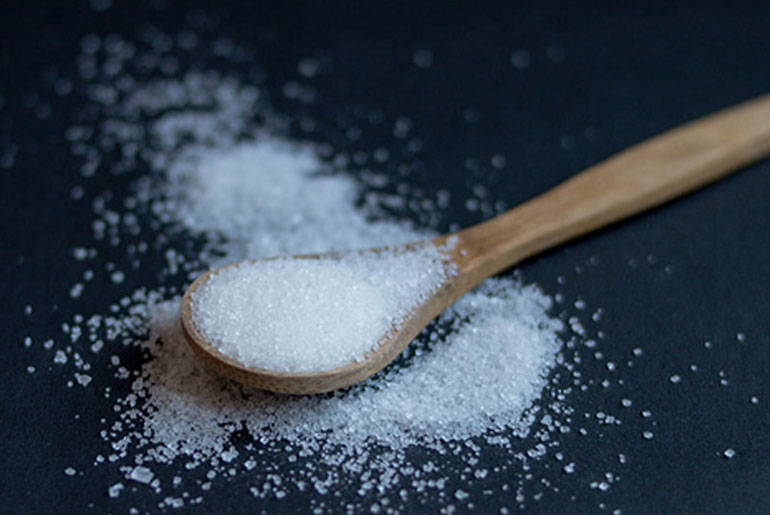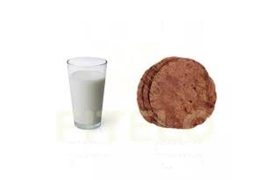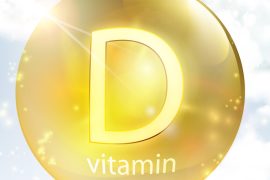Consuming excessive refined sugar can indeed have detrimental effects on our health. While it adds a pleasant taste to various foods and beverages, overconsumption can lead to several health issues. The recent Dietary Guidelines for Indians, jointly released by the Indian Council of Medical Research (ICMR) and the National Center for Nutrition, highlight the importance of reducing sugar and salt intake and opting for healthier cooking oils, such as seed-based oils.
High consumption of processed foods rich in sugar and salt, coupled with decreased physical activity, can contribute to micronutrient deficiencies and obesity, as emphasized in the report. It’s recommended that Indians limit their sugar intake to only 20 to 25 grams per day to maintain optimal health.
The side effects of excessive sugar consumption include:
- Weight Gain: Sugary foods and beverages are often high in calories but low in nutrients. Consuming excess sugar can lead to weight gain and obesity, which are risk factors for various health conditions such as type 2 diabetes, heart disease, and certain cancers.
- Type 2 Diabetes: Overconsumption of sugar can contribute to insulin resistance, where cells become less responsive to insulin, the hormone that regulates blood sugar levels. This can eventually lead to type 2 diabetes, a chronic condition characterized by high blood sugar levels.
- Heart Disease: Diets high in sugar, especially added sugars, have been linked to an increased risk of heart disease. Excess sugar intake can raise triglyceride levels, increase blood pressure, and promote inflammation, all of which are risk factors for heart disease.
- Dental Problems: Sugar consumption is a major contributor to dental cavities and tooth decay. Bacteria in the mouth feed on sugar, producing acids that erode tooth enamel and lead to cavities. Limiting sugar intake and practicing good oral hygiene can help prevent dental problems.
- Liver Damage: When consumed in excess, fructose, a type of sugar found in fruits and added sugars like high fructose corn syrup, can overwhelm the liver’s capacity to metabolize it. This can lead to fatty liver disease, insulin resistance, and other liver-related complications.
- Increased Risk of Certain Cancers: Some studies suggest that a high sugar intake may be associated with an increased risk of certain cancers, including pancreatic cancer, breast cancer, and colorectal cancer. However, more research is needed to fully understand this relationship.
- Risk of Depression and Anxiety: Diets high in sugar and processed foods have been linked to an increased risk of depression and anxiety. Sugar consumption can lead to fluctuations in blood sugar levels, which may affect mood and energy levels.
- Skin Issues: High sugar intake can contribute to skin problems such as acne and premature aging. Elevated blood sugar levels can trigger inflammation and increase the production of sebum, a type of oil that can clog pores and lead to breakouts.
- Negative Impact on Mental Health: Excessive sugar consumption has been linked to cognitive decline and impaired brain function. High sugar intake may interfere with neurotransmitter function and contribute to conditions such as brain fog and memory problems.
- Addiction and Cravings: Sugar has addictive properties that can lead to cravings and overeating. Consuming large amounts of sugar can disrupt the brain’s reward system, leading to a cycle of cravings and consumption.
Overall, reducing sugar intake and opting for a balanced diet rich in whole foods can help mitigate these adverse effects and promote overall health and well-being.
Smart Sugar Strategies:
Balancing sugar intake is crucial for maintaining optimal health. While sugar is a natural part of many foods and provides energy, excessive consumption can lead to various health issues. Here are some tips for finding the right balance:
- Choose Whole Foods: Opt for whole foods such as fruits, vegetables, whole grains, and legumes, which contain natural sugars along with fiber, vitamins, and minerals. These foods provide sustained energy and are less likely to cause spikes in blood sugar levels compared to processed foods.
- Read Labels: Be mindful of added sugars in packaged foods and beverages. Ingredients like sucrose, high fructose corn syrup, and syrups indicate added sugars. Choose products with minimal added sugars or opt for unsweetened versions whenever possible.
- Limit Sugary Beverages: Sugary drinks like soda, fruit juices, and sweetened teas can contribute significantly to sugar intake without providing substantial nutritional benefits. Choose water, herbal teas, or infused water with fresh fruits and herbs as healthier alternatives.
- Practice Portion Control: Enjoy sugary treats and desserts in moderation. Pay attention to portion sizes and savor small servings occasionally rather than indulging excessively.
- Balance with Protein and Fiber: Pair sugary foods with sources of protein and fiber to help slow down the absorption of sugar into the bloodstream. For example, enjoy fruit with nuts or yogurt for added protein and fiber.
- Be Mindful of Hidden Sugars: Sugar can hide in unexpected places, including condiments, sauces, and processed foods like bread and yogurt. Check labels for hidden sugars and choose lower-sugar options when available.
- Prioritize Nutrient-Dense Foods: Focus on consuming nutrient-dense foods that provide essential nutrients without excessive added sugars. Fill your plate with a variety of colorful fruits and vegetables, lean proteins, healthy fats, and whole grains.
- Listen to Your Body: Pay attention to how your body responds to sugar intake. Notice how you feel after consuming sugary foods and beverages, and adjust your intake accordingly to maintain energy levels and overall well-being.
- Plan Balanced Meals: Plan meals and snacks that include a balance of carbohydrates, proteins, and fats to help stabilize blood sugar levels throughout the day. Aim for regular, balanced meals and snacks to prevent cravings and overindulgence in sugary foods.
- Stay Hydrated: Sometimes, thirst can be mistaken for hunger or cravings for sugary foods. Stay hydrated by drinking plenty of water throughout the day, as adequate hydration can help reduce cravings for sugary drinks and snacks.
Finding the right balance with sugar intake is essential for supporting overall health and well-being. By making mindful choices, reading labels, and prioritizing nutrient-dense foods, you can enjoy sugar in moderation while maintaining optimal health.
Disclaimer:
The information contained in this article is for educational and informational purposes only and is not intended as a health advice. We would ask you to consult a qualified professional or medical expert to gain additional knowledge before you choose to consume any product or perform any exercise.







